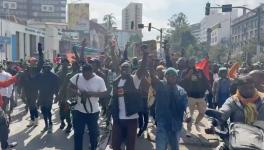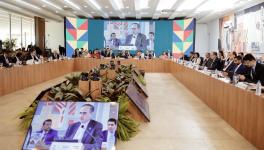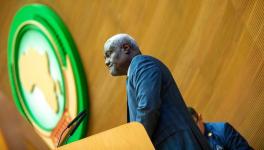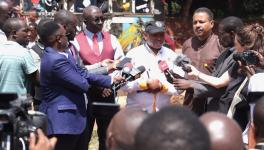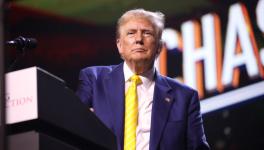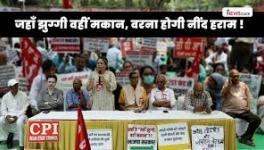Kenya Re-Election: Kenyatta’s Victory Amidst Turmoil
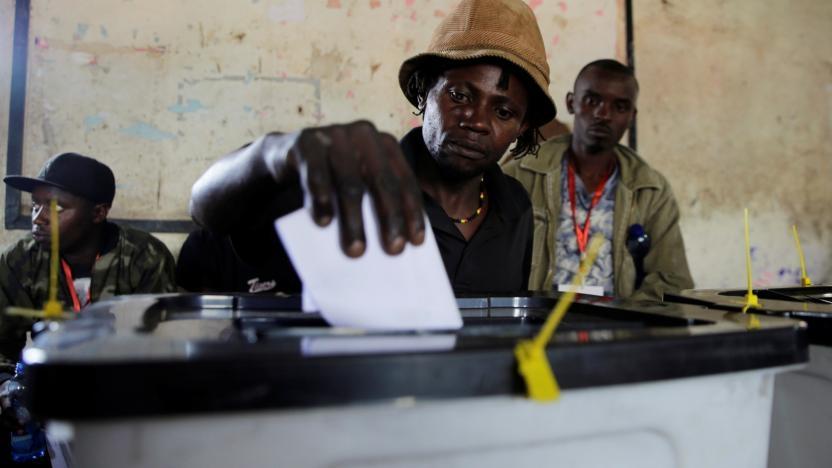
Burning barricades and massive protests rocked the country soon after re-election results were announced. President Uhuru Kenyatta, 55, was seeking a second and final five-year term in the office.
Mr Kenyatta won 98% of the vote with turnout under 40% - less than half that recorded in August's vote, largely because of an opposition boycott. He and his Jubilee Party had managed to get 54 percent of the votes in the poll held in August.
Kenyan opposition leader Raila Odinga has rejected the results of the re-run presidential election and called it a ‘sham’.
"This election must not stand," Odinga told reporters, saying that the result was not credible and alleging that the electoral body was not in charge of the poll.
Odinga withdrew from the the run and had called for election boycott. Odinga had received almost 45 percent of the votes in August 8 election.
Kenya was holding the election re-run after the country's Supreme Court annulled the results of the election held in August, following a challenge by Odinga, due to "irregularities" and "illegalities" in the electoral process.
Attempts by the opposition to halt the re-polls failed as the Supreme Court was unable to raise a quorum of judges to decide on whether the poll should go ahead. The petition to the Supreme Court was brought by three human rights activists who claimed the electoral commission is not ready to hold a credible poll.
Experts fear the questions over the legitimacy of the re-election and the political impasse can lead to repeat of 2007 election violence. The controversial announcement in 2007 of President Mwai Kibaki's victory over Odinga led to protests alleging Kibaki had “stolen” the election.
The protests were banned and police moved to quash the unrest. Around 1,300 people were killed in post election violence.
Both Kenyatta and William Ruto (present deputy president) were indicted by International Criminal Court (ICC) related to the post election violence in 2007. The charges were later dropped by the prosecutors.
Meanwhile, European Union (EU) observer mission has called on Kenya's leaders to enter political dialogue to resolve the impasse following the controversial election re-run.
"More than ever there is a need in Kenya for political leaders to take up their responsibility and find a way out of the impasse through direct talks at the highest level," the mission said on Monday in its preliminary statement on the October 26 repeat elections, Xinhua news agency reported.
"Grievances over the electoral processes should be addressed through judicial channels for legally-mandated remedy. The courts and the Independent Electoral and Boundaries Commission (IEBC) be given full opportunity to work independently and without undue pressure," the observers said.
EU Chief Observer Marietje Schaake said actions by rival sides have put Kenya in an extremely difficult position.
"These include attacks on the judiciary as well as the IEBC, the introduction of changes to the legal framework without consensus, obstruction of the electoral process and officials, and some disproportionate actions by the security forces," Schaake said.
William Ruto, Kenya’s deputy president has ruled out any immediate negotiations with opposition leaders despite fears of escalation of violence.
Ruto accused Odinga and the opposition National Super Alliance (Nasa), of transforming the coalition into a “resistance militia” and accused him of deliberately orchestrating violence to undermine democracy.
(with inputs from IANS)
Get the latest reports & analysis with people's perspective on Protests, movements & deep analytical videos, discussions of the current affairs in your Telegram app. Subscribe to NewsClick's Telegram channel & get Real-Time updates on stories, as they get published on our website.









